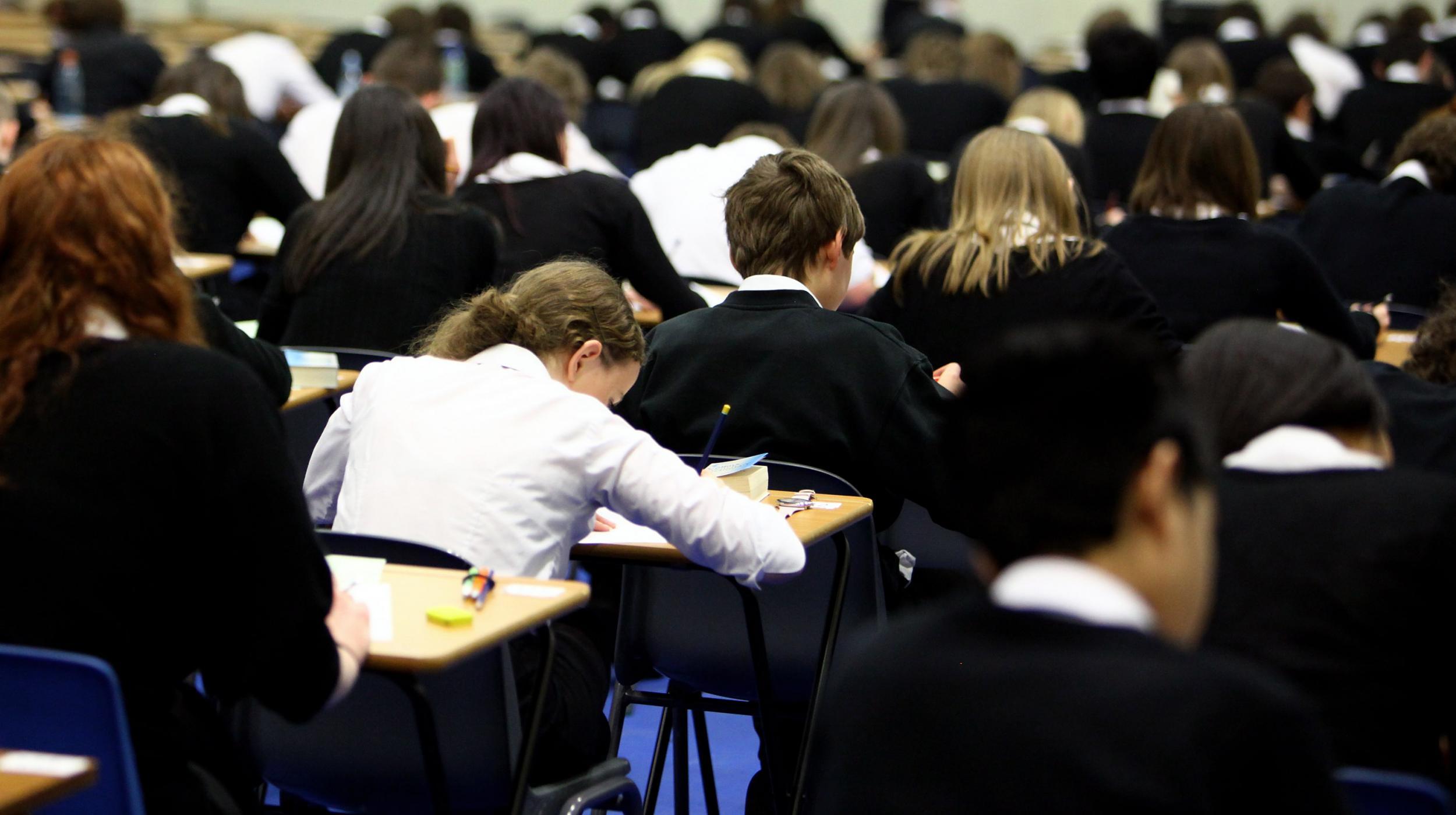Eleven-plus exam 'a dice loaded against disadvantaged pupils', says new report
One in four Kent students attended grammar school in 2016 but those eligible for free school meals - a measure of dependence - were far less likely to sit or pass entry test

Your support helps us to tell the story
From reproductive rights to climate change to Big Tech, The Independent is on the ground when the story is developing. Whether it's investigating the financials of Elon Musk's pro-Trump PAC or producing our latest documentary, 'The A Word', which shines a light on the American women fighting for reproductive rights, we know how important it is to parse out the facts from the messaging.
At such a critical moment in US history, we need reporters on the ground. Your donation allows us to keep sending journalists to speak to both sides of the story.
The Independent is trusted by Americans across the entire political spectrum. And unlike many other quality news outlets, we choose not to lock Americans out of our reporting and analysis with paywalls. We believe quality journalism should be available to everyone, paid for by those who can afford it.
Your support makes all the difference.The dice is loaded against children from poorer backgrounds when it comes to grammar schools, according to a new report.
A study of data from Kent found that about a quarter of all students went to a grammar school in 2016, but children eligible for free school meals (FSM) were less likely to sit or pass the 11-plus.
The report acknowledged that the situation will vary across the country, but said Kent could be a useful case study as it is an area where selectivity “is most heavily embedded” and comprises both rural and urban communities of varying social class.
Kent County Council has said improvement of social mobility in education is one of its priorities and one of the biggest challenges for the selective and non-selective education system.
The data relates to pupils who sat the 11-plus in September 2015 for entry to grammar school in September 2016.
It was obtained under the Freedom of Information Act by the Kent Education Network, a group opposed to selective education.
Some 12% of FSM-eligible students passed the test, compared with 30% of those not eligible for free meals, it said.
Children from less affluent backgrounds also scored particularly poorly in the reasoning element of the test compared with others.
Lead author and Education Datalab director Rebecca Allen said the chances of gaining a grammar school place were like “rolling a loaded dice”.
She explained: “If the 11-plus is a dice, then the reasoning component contributes to the dice being loaded against disadvantaged children.”
The report noted that Kent state primary schools were explicitly asked not to prepare their pupils for the 11-plus, which suggests only those whose parents help them practise, who receive private coaching or attend private schools will gain familiarity in this area.
Allowing state primary schools in Kent to provide 10 hours of practice on reasoning-style questions to all students could help increase the proportion of children from less affluent backgrounds entering grammars, it said.
If the Conservatives stay in power after the June 8 snap election, Prime Minister Theresa May will have the opportunity to roll out her flagship policy of more grammar schools for England.
She has said the policy will help to create a place at a good school for every child and argued that many children's school choices are determined by where they live or their parents' wealth.
But opponents believe it will entrench social division, with National Union of Teachers (NUT) general secretary Kevin Courtney saying there was “no appetite for this programme”.
Currently grammar schools only exist in parts of the country, including in Kent and Buckinghamshire, with a ban on new grammars introduced by Labour in 1997.
Copyright Press Association
Join our commenting forum
Join thought-provoking conversations, follow other Independent readers and see their replies
Comments